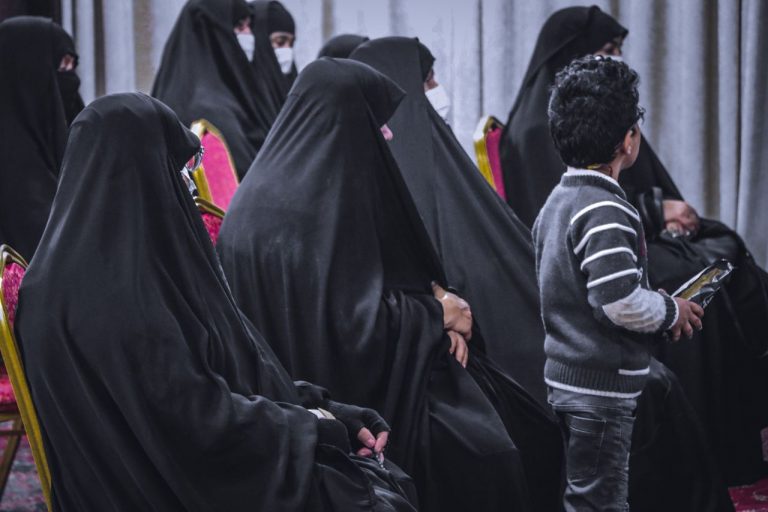5 Ways Islam Promotes Spiritual and Mental Health
Islam approaches health holistically, considering physical, spiritual and mental health.

From an Islamic point of view, a human consists of two aspects; the physical body and the metaphysical soul. The health of these two aspects are interconnected and it is therefore important for individuals to take care of both. When examining the role of mental health in Islam, there is a strong emphasis on spirituality and ensuring that the soul is at ease.
Although millions of people, including Muslims, live with mental health issues, studies have shown that there is an inverse association between religious or spiritual practices and depression (Bonelli et al., 2012). This can be traced back to many aspects of spiritual health, all of which are promoted and encouraged by Islam. The religion of Islam promotes many ideologies and acts that are able to strengthen and encourage spiritual health, which in turn can have a positive effect on mental health.
1. Islam gives a Purpose to Life

In many cases, those who struggle with mental health issues such as low mood or worries feel that life has no meaning or purpose. In Islam, the questions about the nature of life and the world and our purpose in life can be answered through the Quran and the teaching of the Ahlulbayt (as). The Quran highlights that the purpose of individuals on Earth is to obey Allah (swt) through Worship. Islam recognizes that life is temporary and that all that we do on a daily basis is just a test from Allah. At the end of the day our purpose is to serve Allah to earn happiness in eternity, which can bring ease to an individual who is struggling with worries of uncertainty and confusion.
O my people, this worldly life is only [temporary] enjoyment, and indeed, the Hereafter – that is the home of [permanent] settlement. (Quran, 40:39)
2. Islam promotes praying and seeking Du’a

In times of hardship, one can feel lonely and it seems like one is suffering on their own without anyone to help. However, Allah recognizes that we need help at times and thus encourages us to seek help from Him. Through the five daily prayers and Du’as, we can become closer to Allah and He can help us get through tough times. This sense of closeness to Allah can bring ease to one’s heart and mental state. The association between regular prayers and improved mental health has been reported by several studies and has shown that prayers promote individuals to be in a more relaxed state, thereby decreasing anxiety and other symptoms of mental illness (Javed 2012; Doufesh et al., 2014).
3. Islam promotes patience during hardships

Every individual is faced with an array of problems in life, some of which may be physical or mental health problems. Although living with health problems can deteriorate one’s life, Allah tells us to have patience and that He, in turn, will provide us with the strength to overcome hardships.
“O you who believe! Seek help in patience and prayer. Truly God is with the patient” (2:153).
4. Islam teaches us to take care of our physical health

We are given a vessel on this Earth for our soul, and Allah has told us to maintain not only our spiritual, but physical health as well. The Quran states “eat and drink and do not commit excesses; indeed He does not love those who are excessive” (7:31), which implies that individuals should stay healthy. Physical activity and healthy eating are strongly associated with improved mental health and a decrease in risk of chronic diseases, which can also prevent mental illnesses. Indeed Allah is the All-Knowing.
5. Islam Forbids Consumption of Alcohol

Alcohol is a depressant and can have major impact on mental illnesses as it can interfere with chemicals in our brain that are good for our mental health. It can also lead to addiction and lead to greater problems in an individual’s life. It is therefore no surprise that Islam forbids the consumption of alcohol as it can impair physical, mental and spiritual health.
“They ask you about intoxicants and the games of chance. Says: in both of them there is a great sin and means of profit for men, and their sin is greater than their profit.” (2:219)
At The Zahra(s) Trust Canada, we recognize the importance of physical, spiritual and mental health. Accordingly, we work our hardest to provide not only for those in need with their physical necessities but also in supporting their spiritual and mental health needs. You can help support by donating today at zahrafoundation.ca/donate
Disclaimer: This post is provided for general information only. It is not intended to, and does not, amount to medical or professional advice on mental illnesses. If you are in need of mental health support please speak to your family doctor or a qualified professional.
References:
Bonelli, R., Dew, R. E., Koenig, H. G., Rosmarin, D. H., & Vasegh, S. (2012). Religious and spiritual factors in depression: review and integration of the research. Depression research and treatment, 2012, 962860. https://doi.org/10.1155/2012/962860
Ijaz S, Khalily MT, Ahmad I. Mindfulness in Salah Prayer and its Association with Mental Health. J Relig Health. 2017 Dec;56(6):2297-2307. doi: 10.1007/s10943-017-0413-1. PMID: 28502025.


 Donate Now
Donate Now
 Donate
Donate









